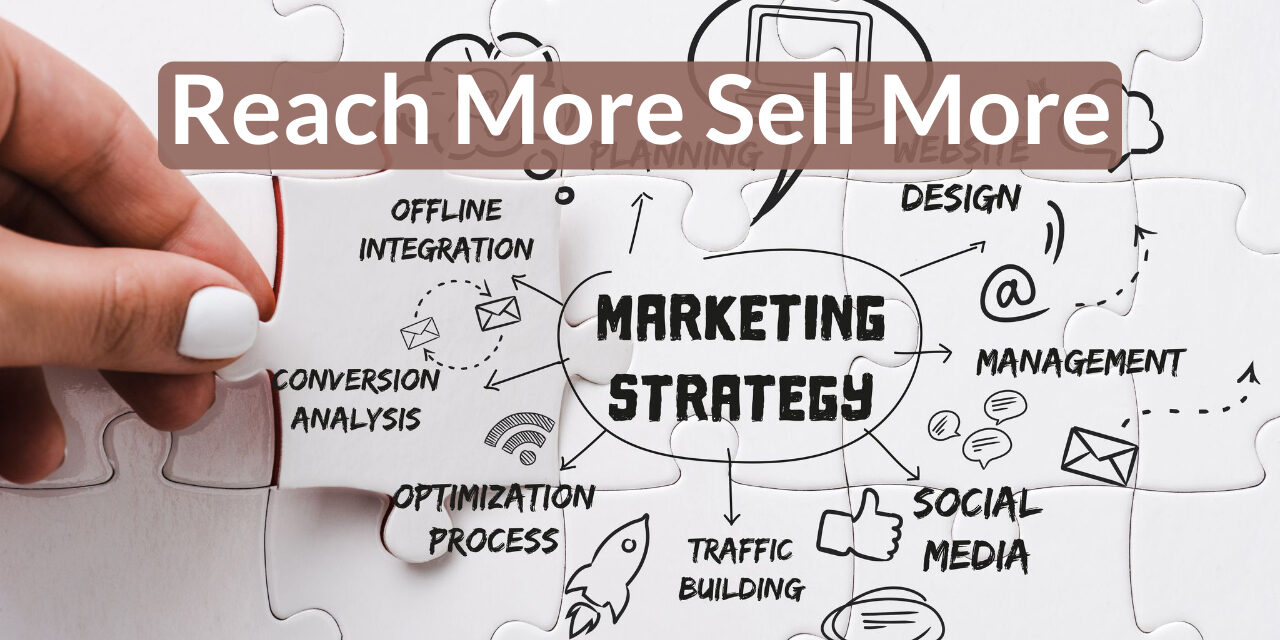Introduction
The world has gone digital, and so should your marketing efforts. As a coach, expert, or consultant, your ability to reach a wider audience is essential for business growth. The internet provides an unlimited supply of quality leads, making it a vital platform for promoting your services. To sell more, you must reach more people, and there’s no better way to do that than embracing the latest digital marketing methods. In this blog post, I will discuss the limitations of conventional marketing methods, the advantages of online marketing, and provide an overview of essential digital marketing techniques you should incorporate into your marketing strategy.
The Limitations of Conventional Marketing Methods
While conventional marketing methods such as print advertising, direct mail, and word-of-mouth have their merits, they come with several drawbacks. Firstly, they’re often geographically restricted, limiting your reach to a specific area. Secondly, targeting specific niches or segments is difficult, resulting in lower conversion rates. These methods can also be expensive and time-consuming, making it challenging to track performance and measure results.
The Advantages of Online Marketing
Online marketing offers numerous advantages over traditional methods. It allows you to reach a global audience at a fraction of the cost of traditional advertising. With targeted and personalized campaigns, you can engage with the right audience, increasing the likelihood of conversions. Additionally, online marketing allows you to track performance and adjust your strategies in real-time, ensuring optimal results.
Essential Digital Marketing Techniques for Coaches, Experts, and Consultants
Content Marketing
- Blogging: Regularly publishing informative and engaging blog posts is an effective way to showcase your expertise, connect with your target audience, and improve your website’s search engine ranking. Blogs help establish your authority in your niche and keep your audience coming back for more.
- Podcasts: Hosting or appearing on podcasts is an excellent way to share your knowledge, reach new audiences, and build trust with potential clients. Podcasts are easily consumable and shareable, making them an attractive content format for busy professionals.
- Webinars: Webinars enable you to educate your audience, demonstrate your expertise, and engage with potential clients in real-time. They also provide an opportunity to collect leads, as attendees often register with their email addresses.
Social Media Marketing
- Facebook, Instagram, and LinkedIn for Business: Establishing a professional presence on social media platforms allows you to connect with your audience, share valuable content, and promote your services. Choose the platform(s) that best align with your target audience and engage with them through regular updates, comments, and direct messages.
- Social Media Advertising: Running targeted ad campaigns on social media platforms can help you reach a broader audience, generate leads, and increase conversions. Platforms like Facebook and LinkedIn offer advanced targeting options, ensuring your ads reach the right people.
- Building an Engaged Community: Interact with your followers, respond to comments and messages, and encourage discussions to create a sense of community around your brand. This will foster trust and loyalty among your audience, increasing the likelihood of them becoming clients.
Search Engine Optimization (SEO)
- Keyword Research: Identify keywords and phrases that your target audience is using to search for services like yours. Incorporating these keywords into your website content, blog posts, and social media updates will improve your visibility on search engines.
- On-page and Off-page Optimization: On-page SEO involves optimizing your website’s content, meta tags, and images to improve search engine ranking. Off-page SEO includes tactics like link building, guest posting, and social media engagement to improve your site’s authority and credibility.
- Local SEO: For coaches, experts, and consultants targeting specific geographic areas, local SEO is crucial. Optimize your Google My Business listing, gather positive reviews, and ensure your website’s content and metadata include local keywords. This will help you rank higher in local search results, making it easier for clients in your area to find your services.
Email Marketing
- Building a Quality Email List: Collect email addresses from potential clients through lead magnets, webinar registrations, and newsletter sign-ups. A quality email list is an invaluable asset for nurturing leads and promoting your services.
- Crafting Engaging Email Campaigns: Create informative, engaging, and well-designed email campaigns to keep your audience informed about your services, share valuable content, and promote special offers. Personalize emails when possible to make them more relevant to individual subscribers.
- Analyzing Metrics and Optimizing Email Strategies: Track the performance of your email campaigns by monitoring open rates, click-through rates, and conversions. Use these insights to optimize your email content, subject lines, and send times for better results.
Building a Strong Online Presence
Creating a Professional Website: Your website is your online storefront and often the first impression potential clients have of your business. Ensure it is user-friendly, visually appealing, and easy to navigate, with clear information about your services and expertise.
Developing a Consistent Brand Identity: Cultivate a cohesive brand identity across all online platforms, including your website, social media profiles, and email campaigns. This helps establish trust and recognition among your audience.
Showcasing Expertise through Testimonials and Case Studies: Share client testimonials and success stories on your website and social media to demonstrate your expertise and the value you provide. This social proof builds credibility and trust with potential clients.
Utilizing Online Platforms and Tools for Collaboration and Communication: Take advantage of project management tools, video conferencing software, and file-sharing platforms to streamline communication and collaboration with clients, making it easier for them to work with you.
Staying Current with Digital Marketing Trends
Constantly Learning and Adapting to New Marketing Tools and Technologies: Stay ahead of the competition by continually learning about new digital marketing tools and techniques. This ensures your marketing strategy remains relevant and effective.
Attending Online Courses, Webinars, and Workshops: Invest in your professional development by participating in online learning opportunities that cover the latest digital marketing trends and best practices.
Following Industry Experts and Influencers: Keep up with the latest industry news and insights by following digital marketing experts and influencers on social media and subscribing to their blogs or newsletters.
Networking and Collaborating with Fellow Coaches, Experts, and Consultants: Connect with like-minded professionals to share ideas, resources, and best practices. Collaboration and networking can lead to valuable partnerships and referral opportunities.
Conclusion
Embracing digital marketing is crucial for coaches, experts, and consultants looking to expand their reach and increase sales. By utilizing online marketing methods like content marketing, social media marketing, SEO, and email marketing, you can connect with an unlimited number of potential clients, ultimately growing your business. It’s time to reinvent your marketing strategies and harness the power of online marketing to reach more people and sell more services.
Summary of Actionable Steps
- Assess your current marketing strategy and identify areas for improvement by integrating digital marketing techniques.
- Start a blog and publish informative and engaging content regularly to establish your expertise and authority in your niche.
- Explore podcasts and webinars as alternative content formats to reach new audiences and showcase your knowledge.
- Set up and optimize your business profiles on relevant social media platforms, such as Facebook, Instagram, and LinkedIn.
- Engage with your audience on social media, respond to comments, and build a sense of community around your brand.
- Consider running targeted social media ad campaigns to reach a broader audience and generate leads.
- Perform keyword research and incorporate relevant keywords into your website content, blog posts, and social media updates.
- Optimize your website for on-page and off-page SEO factors, as well as local SEO if targeting a specific geographic area.
- Build a quality email list by collecting email addresses through lead magnets, webinar registrations, and newsletter sign-ups.
- Create engaging and personalized email campaigns to nurture leads, share valuable content, and promote your services.
- Develop a professional website with a consistent brand identity across all online platforms.
- Showcase your expertise through client testimonials and case studies on your website and social media profiles.
- Stay current with digital marketing trends by attending online courses, webinars, and workshops, following industry experts and influencers, and networking with fellow professionals.
By following these actionable steps, you will be on the right path to harnessing the power of online marketing and expanding your reach to attract more clients and grow your business.











